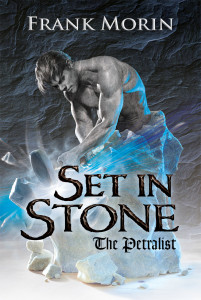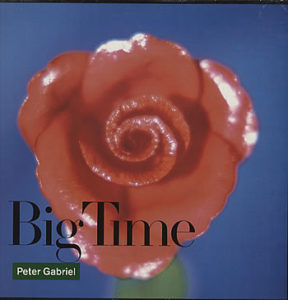A guest post by Robert Nelson
 Brick Cave Media is a small publisher based in Mesa, AZ. One does not normally think of Mesa Arizona being hub for small publishing, but Brick Cave Media traces it’s roots back 23 years to the arrival of founder Bob Nelson and the start of a literary magazine called Anthology.
Brick Cave Media is a small publisher based in Mesa, AZ. One does not normally think of Mesa Arizona being hub for small publishing, but Brick Cave Media traces it’s roots back 23 years to the arrival of founder Bob Nelson and the start of a literary magazine called Anthology.
Today, Brick Cave Media represents 9 different authors across 2 states, with over 50 titles in publication.
While we function mostly as a publisher in the traditional sense, we benefit from having a small, agile team that can change direction quickly as needed. We have a passionate staff of 4 that wears all the hats of a full business, and a halo of editors, artists and others that support the Press’ efforts.
As a small press, our authors interact with each other, which we encourage, because we want them to be a source of encouragement and to share the opportunities that an indie author may not have alone. As a Press, we work to offer opportunities of scale, representation at events that indies may find daunting or financially challenging on their own and access to distribution opportunities that we can focus on while the author can continue to focus on writing.
A small press, the RIGHT small Press, can be a great vehicle for an author. We at Brick Cave tell every prospective author that there is nothing we do that you cannot do yourself, if you choose in invest the time and resources. That is not playing down us or any other small press, that’s an acknowledgement of the realities of what the last 25 years have done for the industry. Choose a small press based on what you want them to do for you, not for what you think you cannot do.
Brick Cave became a publisher through an interesting story. The business itself was founded in 2006 as a spoken word audio label, producing spoken word albums, and taking advantage of the MP3 revolution that occurred at the turn of the century. In 2008, the business added film company to it’s roster, as the company produced the feature film Sacrifice (available on Amazon).
In 2009, Author J.A. Giunta approached Brick Cave CEO Bob Nelson about publishing his fantasy novels. The two had worked together previously on Anthology literary magazine in 1994-1996. Because the Amazon Kindle platform had just debuted and there was a curiosity about how they could leverage the platform, Nelson agreed to publish Giunta and a deal was struck. In 2010, the Press added Sharon Skinner, and in 2011, started printing paperback editions of their books. In 2010, Brick Cave started making public appearances at local conventions (originally to promote Sacrifice, but eventually the books took over) and from there the business grew. In 2016, book sales accounted for 85% of Brick Cave’s annual revenue, and Brick Cave makes 12-15 appearances each year promoting new titles.
Originally, Brick Cave, because of it’s connections to the poetry non profit Anthology, was heavily poetry focused. To this day, Brick Cave maintains a strong roster of poets and release 1-2 titles a year. With the addition of J.A. Giunta and later Sharon Skinner and others, the Press expanded to include traditional fantasy, science fiction, and urban fantasy.
As an author, if you are looking to use a small press, start with and examination of yourself, and make an honest list of the things you would like to keep control of and the things you would be willing to let someone else handle for you. Then profile the small presses that match you and your writing style, talk to strength in areas you want them to handle, and look like they would meet your expectations. Buy a book from them and read it. Reach out to them and ask for submission advice. Follow their guidelines. Be the model submitter that they can point out to others.
Also, understand that the majority of small presses are generally overworked, organizationally stressed, and financially limited. Keep your expectations in line with reality. If you start the relationship right, by researching and finding the best match for your style and your work, a small press can be a very powerful partner in a writer’s career.
Learn more about Brick Cave at https://brickcavemedia.com







